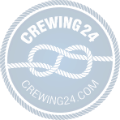
JULY 24, 2013 — Columbia Shipmanagement (Deutschland) GmbH (CSM-D), a German corporation, and Columbia Shipmanagement Ltd. (CSM-CY), a Cypriot company, were yesterday sentenced in in federal court in Newark, N.J., to pay a $10.4 million criminal penalty, $2.6 million of which will be directed to the National Fish and Wildlife Foundation to fund community service projects selected to help restore the coastal environment of New Jersey and Delaware hit by Hurricane Sandy.
The remaining $7.8 million is designated as a criminal fine.
The case fines are the largest vessel pollution settlementthus far in either New Jersey or Delaware.
In addition, the companies were placed on four years of probation. During probation, they will be subject to the terms of an environmental compliance plan that requires outside audits by an independent company and oversight by a court appointed monitor.
The companies admitted that four of their ships - three oil tankers and one containership - had intentionally bypassed required pollution prevention equipment and falsified the oil record book. The case is the largest vessel pollution settlement in either New Jersey or Delaware.
The companies previously pleaded guilty before U.S. District Judge Susan D. Wigenton on March 21, 2013, to six counts involving three vessels in New Jersey and four counts involving one ship in Delaware. The counts consist of violations of the Act to Prevent Pollution from Ships for failing to maintain an accurate oil record book, obstruction of justice and making false statements.
According to documents filed in this case and statements made in court:
The investigation into the M/T King Emerald was launched on May 7, 2012, after several crew members provided cell phone photos and other evidence to Coast Guard officers conducting a routine inspection. The King Emerald was engaged in various types of illegal discharges of bilge waste dating back to at least 2010. The defendants admitted that illegal discharges of both sludge and oily bilge waste were discharged at night off the coast of Central America, including a discharge within the Exclusive Economic Zone of Costa Rica where a national park is located. The ship's second engineer pleaded guilty previously and was sentenced in Newark on April 3, 2013.
The Delaware investigation began in October 2012 after several crew members of the M/T Nordic Passat provided the Coast Guard with a thumb drive containing photographs and video showing how illegal discharges had been sent overboard through the ship's sewage system. They also alleged that sludge had been put into the ship's cargo tanks and that logs showing sludge had been incinerated onboard had been falsified.
The charges involving the M/V Cape Maas stem from a whistleblower report to the Coast Guard when the ship visited the port in San Francisco. The whistleblower provided a video showing the operation of the oily water separator pumping overboard without the use of the oil content monitor to detect and prevent oil from being illegally discharged.
Violations on a fourth ship, the M/T Cape Taft, which was anchored in New York waters and destined for New Jersey, were uncovered just weeks before the March plea, after the ship disclosed problems to CSM-D. An internal investigation revealed that the ship's oily water separator had been used improperly for some time. Instead of sensing a sample of overboard discharges, it was instead flushed with fresh water by the crew. The ship's oil record book was revised by CSM-D to reveal 16 instances where it was false. The defendants cooperated with the investigation and provided the government with video replays of the oil content monitor showing when the crew had "tricked" the sensor with fresh water.
![[ad-side]](http://www.crewing24.com/ad_images/91_banner.png)
![[ad-side]](http://www.crewing24.com/ad_images/107_banner.jpg)
![[ad-side]](http://www.crewing24.com/ad_images/89_banner.png)
![[ad-side]](http://www.crewing24.com/ad_images/65_banner.jpg)
![[ad-side]](http://www.crewing24.com/ad_images/103_banner.jpg)
![[ad-side]](http://www.crewing24.com/ad_images/110_banner.png)
![[ad-side]](http://www.crewing24.com/ad_images/85_banner.jpg)
![[ad-side]](http://www.crewing24.com/ad_images/80_banner.jpg)
![[ad-side]](http://www.crewing24.com/ad_images/88_banner.jpg)